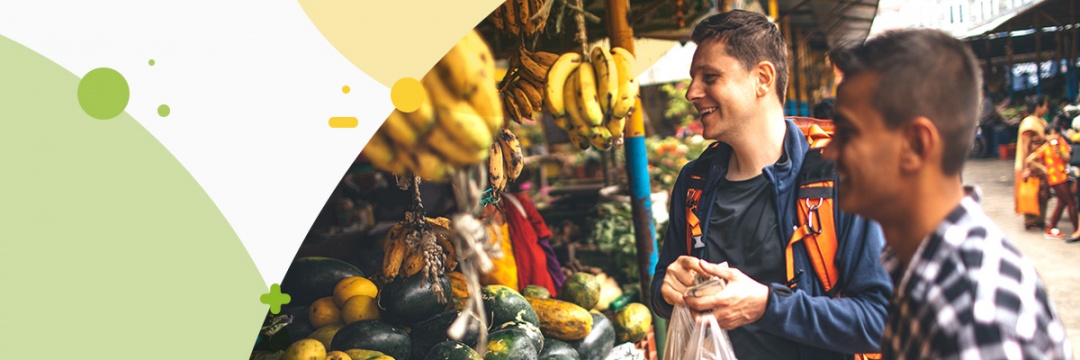Exploring new cuisine offers one of the best parts of traveling abroad. But if you’re traveling with diabetes, eating a lot of unknown foods while working to manage your blood sugar proves challenging. However, preparation helps. Here are a few essential tips to remember as you deal with food in foreign countries.
Tip #1 – Do Your Research
Spend some time researching the local cuisine in a country, particularly if you’re unfamiliar with it. Discover what ingredients commonly get used in their most popular dishes. You may even want to talk to your dietitian, doctor, or a diabetes educator to get some advice on the best foods to choose in the country you’ll be visiting. They’ll also be able to help you determine any adjustments in your diabetes care routine you may need to make while traveling abroad.
Tip #2 – Remember Local Customs
Beyond serving up different foods, remember that other countries often have different local customs when it comes to their mealtimes. One good example is the country of Spain. Generally, Spanish people eat a late dinner, at 9 pm or 10 pm at night. People with diabetes may have a difficult time going from lunch to that late dinner without eating. Taking these customs into account can help you ensure you have some snacks on hand to keep blood sugar levels stable between meals.
Tip #3 – Try Practicing Portion Sizes at Home
Even if you’ve become familiar with the local foods, it’s tough to know how much is in a serving size. It’s especially important to know serving sizes if you’re headed to a country that eats a lot of carbs, such as rice or pasta. Spend some time measuring portion sizes at home before you travel. With some practice, you’ll be able to eyeball portions more accurately. That makes it easier to estimate the carbs you’re eating while abroad. Sizing portions in comparison to common items you’ll have along on your trip — i.e., a smartphone — can help you estimate portion sizes on the go.
Tip #4 – Don’t Be Afraid to Ask Questions
When eating new foods abroad, don’t assume about the ingredients. Unfamiliar dishes may include spices or sauces that are high in fat or sugar without being obvious. The best thing to do is ask questions. Of course, that’s tough if you don’t speak the local language. Learning a few food-related words and phrases before you travel abroad can help. Good ones to learn include: “no sauce;” “no sugar, please;” and “more veggies.”
Another option is to let the restaurant staff know that you are diabetic. If you’re able to communicate that, a good server may be able to help you find healthier options on the menu.
Tip #5 – Fall Back on the Plate Method
No matter where you’ll be traveling, one great fallback is the plate method. Start with your plate and make sure it’s half full of veggies — raw or cooked. Just avoid vegetables that have added sugar or those that have been deep fried. Have another section of your plate for protein, and then a small section for high-carb foods like bread, rice, or pasta. Using the plate method makes it easier for you to control calories and carbs while giving you the chance to enjoy tasting a bit of all the delightful dishes you encounter.

Sources
https://diatribe.org/traveling-abroad-diabetes-have-your-dolce-and-eat-it-too
https://www.abbott.com/corpnewsroom/diabetes-care/eating-right-when-traveling-with-diabetes.html
https://www.diabetes.org.uk/guide-to-diabetes/life-with-diabetes/travel#food
The mySugr website does not provide medical or legal advice. mySugr blog articles are not scientific articles, but intended for informational purposes only.
Medical or nutritional information on the mySugr website is not intended to replace professional medical advice, diagnosis or treatment. Always consult a physician or health care provider with any questions you may have regarding a medical condition.





